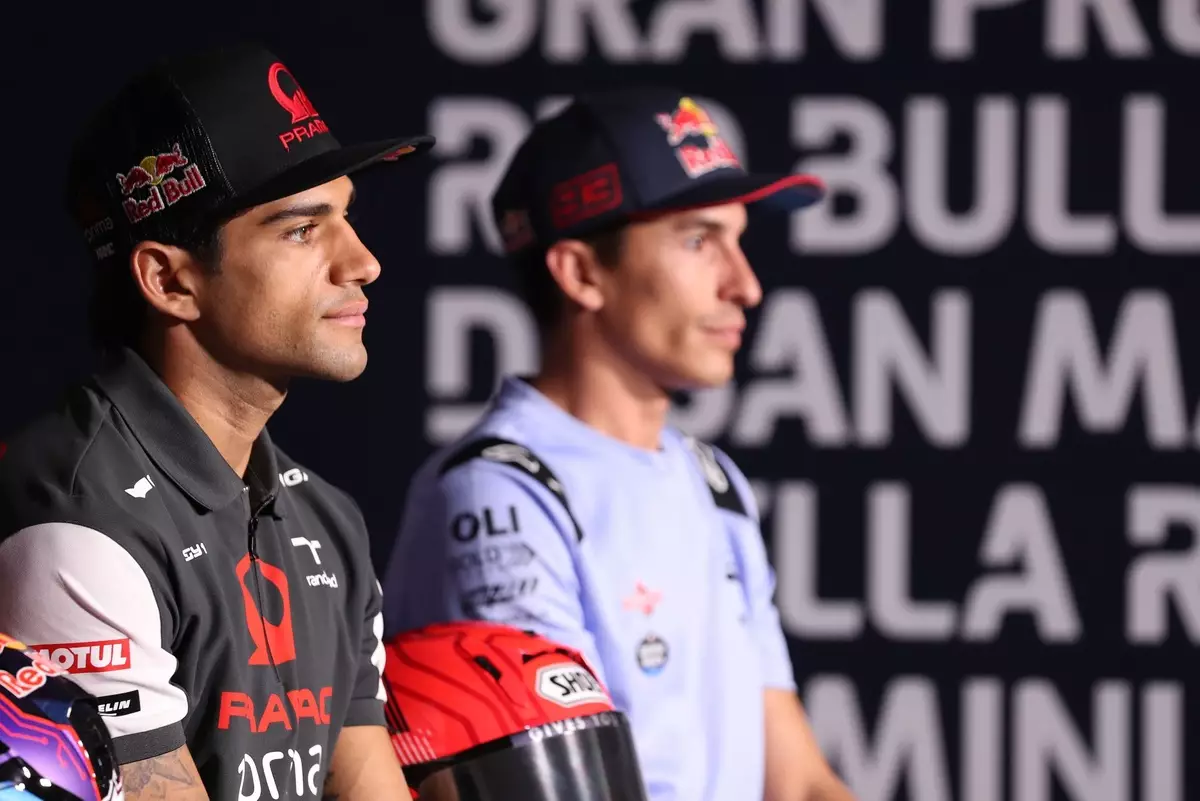In the high-octane world of MotoGP, where speed and risk are constants, Jorge Martin’s recent journey illustrates the significance of patience and introspection in the face of adversity. The reigning world champion has displayed remarkable resilience following a series of injuries that have sidelined him from critical events, particularly after his unfortunate training crash. As Martin prepares to re-enter the competitive arena, he credits valuable insights from fellow racers, particularly Marc Marquez, as instrumental in shaping his recovery strategy.
Marquez, who knows the harsh realities of injury recovery all too well, emphasized the importance of not rushing back into competition. His own experience, marred by a severe crash at Jerez in 2020, served as a cautionary tale. Martin recognizes the weight of this advice—when someone like Marquez, a multiple-time champion, speaks from personal experience, it resonates deeply. He stated, “Marc and other riders told me to take my time—not to rush things.” This not only highlights the solidarity among top competitors but also reflects a growing awareness within the sport that mental and physical health should take precedence.
A Shift in Perspective
Martin approaches his return to racing with an innovative mindset, particularly because he understands the implications of what he is facing. Absent from the first three rounds of the 2025 season has left him with limited opportunities for title defense, pushing him to recalibrate his expectations. Instead of immediate glory, he seeks gradual improvement and comfort with both his physical state and his new Aprilia bike, which has not yet proven competitive.
His mental state is a cornerstone of this recovery, as he remarked, “I’m approaching this with a lot of excitement but without the pressure of having to go out and win immediately.” By shedding the immediate burden of championship aspirations, Martin grants himself the necessary space to adapt. This approach acknowledges the complexities of transitioning back into a physically demanding sport, especially with a new machine.
Despite facing an uphill battle, Martin remains committed to his growth journey with the Aprilia team. He made it clear that his priority in the initial races will be to amass experience rather than obsess over results. His ethos centers on the long-term view—“I need to grow alongside Aprilia,” he emphasized, a sentiment that resonates strongly within the fast-paced environment of competitive racing.
Confronting the Past
An intriguing aspect of Martin’s recovery trajectory is his determination to confront the track where his training incident occurred. His commitment to returning to the Lleida circuit on a Supermoto motorcycle encapsulates a critical element of recovery—the necessity to engage with one’s fears directly. As he articulately expressed, “That crash won’t happen to me again. I know what I did wrong.” This proactive attitude not only demonstrates a learning mindset but also symbolizes a powerful step towards reclaiming his confidence.
The incident weighed heavily on him, with Martin revealing it to be the most severe challenge of his career thus far. The physical toll was compounded by the emotional and psychological stresses of recovery. It’s one thing to endure physical injuries, such as the fractures in his hand and foot, but the mental aspect of overcoming such a significant setback is often an unspoken battle that athletes face.
The Path Forward
As he eyes his upcoming return in Qatar, Martin is keenly aware that he will not be at his absolute best. The reality of his injuries and the adjustments needed for a new motorcycle journey means that the first races will serve more as a foundation for future success rather than immediate triumphs. “The most important thing is that when I get back on the bike, my physical condition allows me to ride properly,” he stated, showcasing the balance of ambition intertwined with pragmatism.
Jorge Martin’s narrative is a testament to the complexities of recovery, the importance of mentorship within the racing community, and the mental fortitude required to face one’s fears. It underlines that in a sport characterized by its relentless pursuit of speed, the real victories often lie in resilience, learning, and personal growth. Instead of merely seeking a return to form, Martin embodies the spirit of reemergence, not just as a competitor but as a testament to human perseverance. In many ways, his approach is a blueprint for navigating adversity—not just in MotoGP, but in all walks of life.

